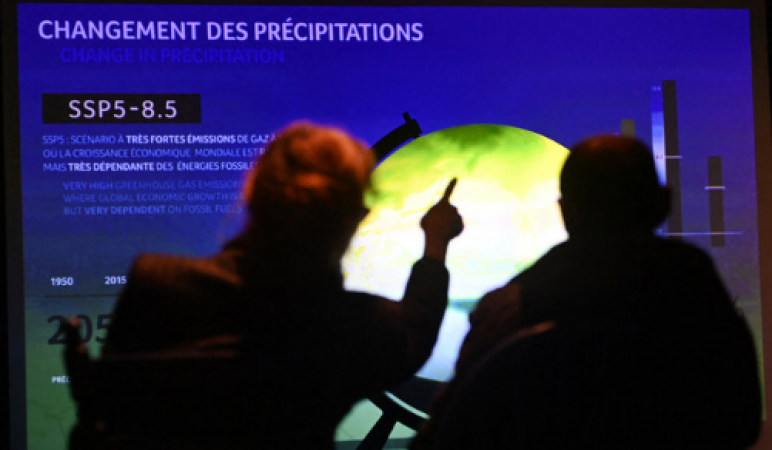
UNO: A dire new report from the United Nations has sounded the alarm on the state of the planet's climate, highlighting that the world is perilously off course in achieving its climate goals. The findings, released on Friday, mark the first comprehensive assessment of global progress on climate action since the historic 2015 Paris Agreement. The report serves as a resounding wake-up call, emphasizing that immediate and substantial action is imperative to prevent catastrophic consequences.
The central takeaway from the report is clear: current commitments to reduce greenhouse gas emissions are grossly insufficient to keep global warming within the target of 1.5 degrees Celsius above pre-industrial levels, as established by the Paris Agreement. To stay within this critical threshold, the world must reduce emissions of heat-trapping gases by a staggering 43% by 2030, compared to 2019 levels, and an even more ambitious 60% by 2035.
Regrettably, the report also underscores that the world is failing to make progress toward the crucial goal of achieving net-zero emissions by mid-century. Net-zero emissions imply that the amount of greenhouse gases entering the atmosphere is balanced by the amount removed.
Also Read: Powerful 6.8-Magnitude Earthquake Devastates Morocco, Claiming Nearly 300 Lives
To realistically approach net-zero emissions, the report advocates for a swift and comprehensive transition away from fossil fuels and toward renewable energy sources. It additionally calls for significant investments in energy efficiency measures and carbon capture and storage technologies.
Here are some of the key insights from the report:
Also Read: Tensions Flare in the Caucasus: Russia Lodges Protest with Armenia Over Disputed Region
These findings serve as a poignant reminder of the urgent need for decisive climate action. The narrow window of opportunity to avert the most catastrophic impacts of climate change is rapidly closing, underscoring the imperative for immediate and comprehensive efforts to curtail emissions and transition toward a sustainable and clean energy future.
What Can Individuals Do to Make a Difference?
While addressing the climate crisis requires concerted global efforts, individuals can play a significant role in contributing to solutions. Here are some actionable steps that you can take to make a positive impact:
Reduce Energy Consumption: Minimize your energy use by turning off lights when leaving a room, unplugging appliances when not in use, and taking steps to improve the energy efficiency of your home.
Choose Renewable Energy: Opt for renewable energy sources by selecting a green energy provider for your home or business, or consider installing solar panels on your property to generate clean energy.
Prioritize Sustainable Transportation: Whenever possible, choose eco-friendly transportation options like walking, biking, carpooling, or taking public transit. Reducing your reliance on fossil-fueled vehicles can significantly cut emissions.
Mindful Eating: Reducing meat consumption, particularly red meat, can have a substantial impact on reducing greenhouse gas emissions associated with livestock farming. Consider incorporating more plant-based meals into your diet.
Support Sustainable Businesses: Make conscious consumer choices by supporting companies committed to environmental sustainability and reducing their carbon footprint. Look for eco-friendly and ethically produced products.
Advocate for Change: Engage with your local and national representatives to advocate for policies and initiatives that prioritize climate action, renewable energy, and emissions reductions.
Educate and Raise Awareness: Share information about climate change with your friends, family, and community. Increasing awareness can lead to greater collective action.
Also Read: G20 Summit in New Delhi: Global Leaders Converge for Decisive Action and Diplomacy
Every individual action counts, and collectively, we can drive positive change. By taking steps to reduce your own carbon footprint and advocating for broader climate action, you can contribute to the global effort to combat climate change and safeguard the future of our planet. The UN report serves as a stark reminder